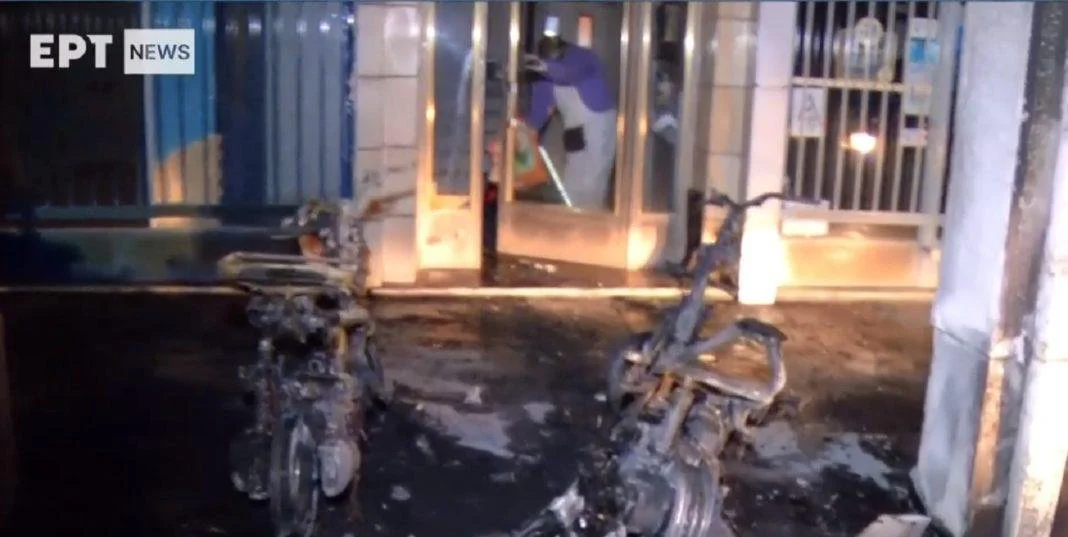Arson Attack on Greek Police Officer’s Motorcycle Claimed by Anarchist Group
Executive Summary
An anarchist collective calling itself Deniers of Social Peace has claimed responsibility for a July 25, 2025, arson attack on a police officer’s private motorcycle in Elliniko, Greece. In a communique, the group framed the act as retaliation against state repression, police militarization, and urban gentrification, dedicating the attack to deceased and imprisoned anarchists.
Key Judgments
Key Judgment 1
The targeting of an off-duty officer’s personal property underscores the group’s willingness to blur lines between on-duty policing and private life, aiming to create persistent insecurity for individual officers.
Evidence: The communique stated, “no cop can sleep peacefully,” asserting that officers bear responsibility simply for choosing to serve the state.
Key Judgment 2
The action is framed within a broader ideological narrative linking policing to state protection of economic elites, gentrification, and suppression of anarchist and marginalized communities.
Evidence: The statement denounced “shielding internal social peace against resistance” and referenced evictions of squats, militarization of repression, and displacement of the poor.
Key Judgment 3
The group seeks to build solidarity across borders by dedicating the attack to imprisoned anarchists in Greece and Hungary, signaling transnational ideological alignment.
Evidence: Named dedications were made to anarchists Kyriakos Xymitiris, Marianna, Dimitra, and Maja T., the latter imprisoned in Hungary for anti-fascist activity.
Analysis
The claim of responsibility for the July 25 arson attack reflects an ongoing trend of low-intensity, symbolic violence by anarchist cells in Greece, often framed as direct action against state repression. By targeting an officer’s private motorcycle rather than official police infrastructure, Deniers of Social Peace reinforces a strategy of personalizing conflict, seeking to erode the perceived safety of police personnel beyond their professional duties.
The communique situates the attack within a comprehensive critique of policing as a tool for maintaining social control, enabling gentrification, and protecting the interests of the wealthy. This aligns with longstanding narratives in Greek anarchist discourse, particularly in Athens, where police presence is closely associated with the eviction of political squats and public space “sanitization.”
The dedication of the action to multiple imprisoned anarchists—both domestic and foreign—illustrates the group’s integration into a transnational anarchist network, in which local acts are tied to broader struggles. Such dedications can serve as morale boosters within activist circles, while also signaling ideological unity across borders. For security services, the incident exemplifies the continued risk of targeted property damage against police and state-affiliated individuals, often carried out by small, clandestine cells that blend local grievances with global solidarity messaging.


